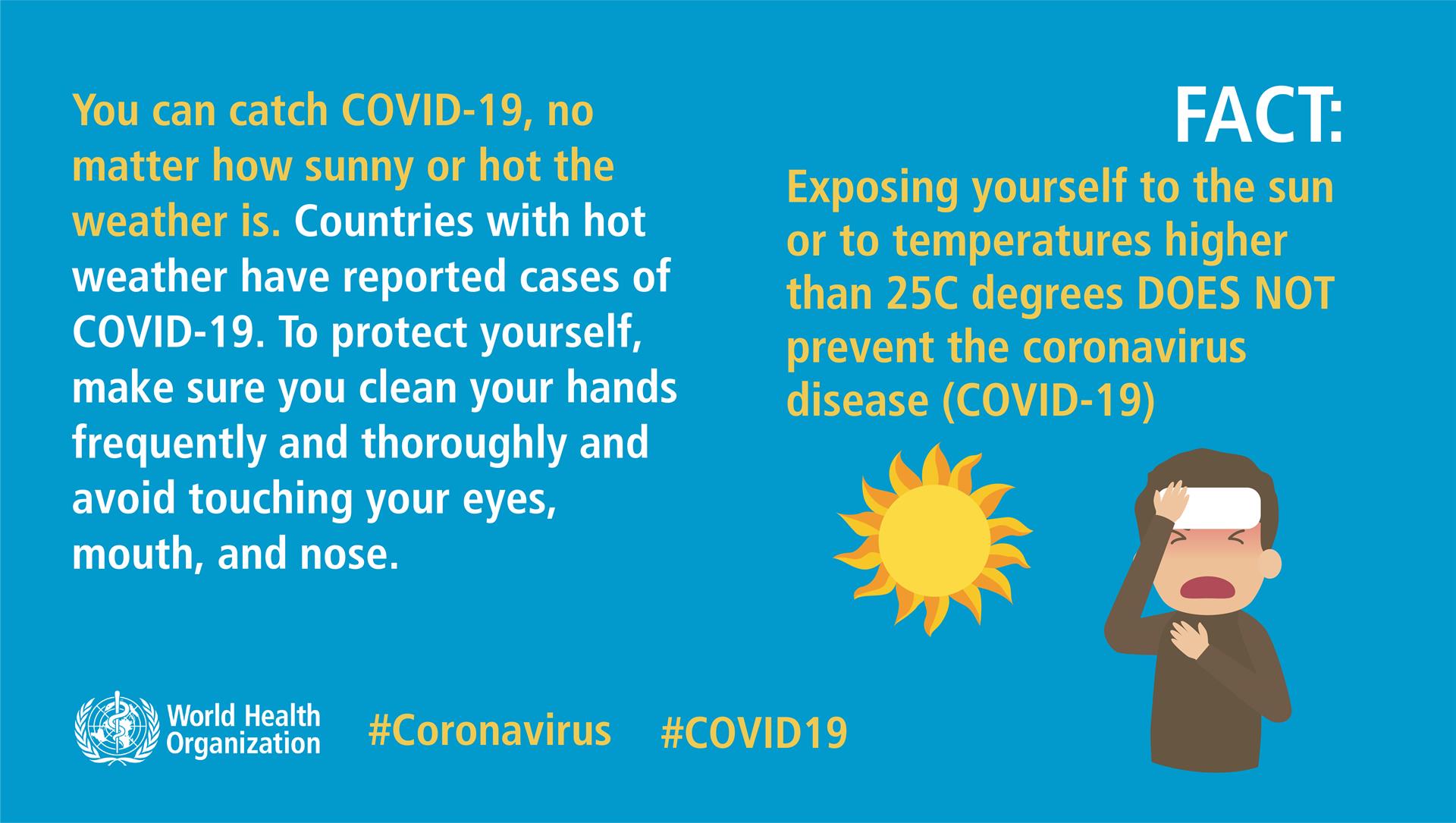 (Graphic courtesy of the World Health Organization)
(Graphic courtesy of the World Health Organization)In the midst of the most challenging public health crisis in recent memory, it's more important than ever to celebrate Public Health Week. Public health promotes and protects the health of people and the communities where they live, learn, work and play. Amidst the coronavirus pandemic, we have seen many public health guidelines to help ensure that our communities are safe and healthy.
The number one thing we can do right now is to stay at home to minimize everyone’s risk exposure. You may be thinking “I’ll be okay” if I get the coronavirus. It’s true you might. But the truth of the matter is that you can certainly spread it to someone else. Whether you have symptoms or are asymptomatic, someone else may not be okay if they contract the coronavirus. There currently is no vaccine to prevent the coronavirus disease, and the best prevention method is to avoid being exposed.
According to the Centers for Disease Control and Prevention, the coronavirus spreads mainly from person to person transmission, between people who are in close contact with one another - within 6 feet. When you are in close contact with someone, respiratory droplets produced when an infected person coughs, sneezes or talks can spread to others. These droplets can land in the mouths or noses of people who are nearby or possibly be inhaled into the lungs.
Public health is about minimizing risks for the highest population of people. In order to slow the spread of the coronavirus, staying at home is the most powerful thing that we can do to help one another. Please stay at home for yourself, for your family and friends, and for those you don’t know. Each of our behaviors translates into something that will change the course of the spread of this pandemic and can save lives.
For more tips on minimizing the spread, head to the
CDC website.
We understand that it can be difficult to stay at home, especially as the weather gets warmer and the days of sunshine get longer, but it’s important to adhere to the recommended guidelines. The World Health Organizations reminds us that “exposing yourself to the sun or to temperatures higher than 77 F, or 25 C, degrees does not prevent the coronavirus disease. You can catch COVID-19 no matter how sunny or hot the weather is. To protect yourself, continue to clean your hands frequently and thoroughly with alcohol-based hand rub or washing with soap and water, and avoiding touching your eyes, mouth and nose.”
It will be tough to stay indoors after we have endured such cold temperatures and unruly weather during the winter months, but we need to continue to minimize our risks and stay at home.
Here are some tips to stay healthy at home:
- Take short active breaks throughout the day: Short bursts of dancing or chores. Try
yoga stretches at your desk and
stretches to "undesk" your body.
- Follow an online exercise class: Check out
Campus Recreation Fitness for links to many online workouts and on Instagram (@depaulcampusrec) for daily fitness tips and resources.
- Walk: Even in small spaces, walking around or in one spot can help you stay active. Try standing for a call or walking around. If you decide to go outside, remember to maintain at least 1 meter from others and avoiding touching things in the outdoor environment.
- Stand up: Stand up whenever possible. Aim for interrupting sitting every 30 minutes.
- Relax: Meditation and deep breathing can help you remain calm and tune into your body, asking yourself “what does my body need?”
Click here for meditation with Mat Charnay.
- Get enough sleep: 7-9 hours of sleep is the goal. For more resources on improving your snooze, sign up for the online Refresh Sleep program.
We know this is a difficult time but it is important for all of us to do our part to help slow the curve and stop the spread of the coronavirus.
NOTE: If you are planning any wellness related events to share with our DePaul community to keep us healthy and well, be sure to post them on the
University events calendar and
Newsline, tagging #takecaredepaul and #wellness.
Take Care DePaul!